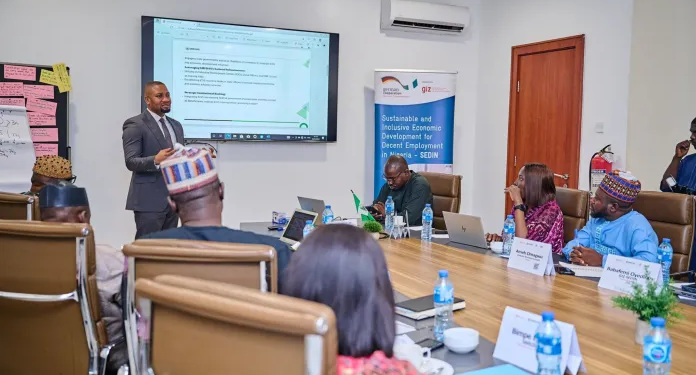The Small and Medium Enterprises Development Agency of Nigeria (SMEDAN), in collaboration with GIZ SEDIN, GOPA, and Kaduna Business School, has concluded a two-day workshop focused on refining the Inspire, Create, Start, and Scale (ICSS) curriculum. This initiative aims to enhance the training and development framework for Micro, Small, and Medium Enterprises (MSMEs), ensuring they are better equipped to navigate the challenges of business growth and sustainability.
The ICSS framework is designed to support entrepreneurs at various stages, from ideation to scaling, by providing them with essential skills, knowledge, and resources. Recognizing the critical role of MSMEs in economic development, SMEDAN and its partners worked to improve the curriculum’s accessibility, impact, and long-term sustainability. The workshop also emphasized the need to institutionalize the framework, ensuring its adoption across various business support platforms.
In an official update shared on its X handle, SMEDAN highlighted the significance of the ICSS curriculum in fostering a more resilient and competitive MSME sector. The agency noted that by strengthening this training model, entrepreneurs will gain the necessary tools to navigate challenges, scale their businesses successfully, and contribute meaningfully to job creation and economic growth.
Beyond refining the curriculum, this initiative reflects a broader commitment to empowering small business owners through structured training programs. By fostering collaboration with key stakeholders, SMEDAN and its partners aim to create an enabling environment where MSMEs can thrive. The agency emphasized that continuous improvements in business education and skill development are crucial for ensuring long-term economic impact, particularly in a dynamic and evolving marketplace.
This effort aligns with ongoing strategies to position MSMEs as key drivers of economic transformation. As small businesses form the backbone of most African economies, investing in structured training and development initiatives is essential. By enhancing accessibility to resources and ensuring institutional support, programs like ICSS provide entrepreneurs with a clear pathway to success, enabling them to build sustainable businesses that contribute to national and regional economic growth.
With partnerships such as this, SMEDAN and its collaborators are not only strengthening Nigeria’s MSME sector but also setting a precedent for how targeted interventions can drive meaningful change. By continuously improving business education and development frameworks, they are helping to build a more resilient and competitive entrepreneurial ecosystem that can withstand economic fluctuations and seize emerging opportunities.










